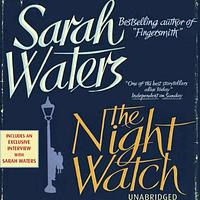Take a photo of a barcode or cover
challenging
dark
emotional
hopeful
reflective
sad
tense
fast-paced
Plot or Character Driven:
A mix
Strong character development:
Yes
Loveable characters:
Complicated
Diverse cast of characters:
No
Flaws of characters a main focus:
Yes
dark
sad
slow-paced
Plot or Character Driven:
Character
Strong character development:
No
Loveable characters:
No
Diverse cast of characters:
No
Flaws of characters a main focus:
Yes
WHAT WAS THE POINT OF THIS BOOK?
emotional
reflective
sad
slow-paced
Plot or Character Driven:
Character
Strong character development:
Yes
Loveable characters:
Complicated
Diverse cast of characters:
Yes
Flaws of characters a main focus:
Yes
How long did they have to go on, letting the war spoil everything? They had been patient, all this time. They’d lived in darkness. They’d lived without salt, without scent. They’d fed themselves little scraps of pleasure, like parings of cheese. Now she became aware of the minutes as they passed: she felt them, suddenly, for what they were, as fragments of her life, her youth, that were rushing away like so many drops of water, never to return. [loc. 5289]
London, 1947: Kay lives in a half-derelict house owned by a Christian Scientist, mourning a great loss. Helen lives with popular author Julia, but is jealous of Julia's other friends. Duncan works in a candle factory, and lives with an older gentleman he calls 'Uncle Horace'. Duncan's sister Viv lives with her father, works with Helen and is in a relationship with Reggie, who is married. All of them are lonely, miserable and greatly changed by their wartime experiences.
Then Waters takes us back to 1944 and shows us how they got to where they are: the mystery about Duncan's time in prison, Kay being her best self as an ambulance driver during the bombing of London, Helen's infidelity, Viv's catastrophe. And further back, to 1941, as a kind of epilogue: how Kay met Helen, how Viv met Reggie, the evening that Duncan's life changed.
This is a book that demands to be reread: at least, I had to immediately turn back to the first chapters to reread in light of what was only revealed later in the novel. Waters never lapses into explanation: every 1947 scene, every emotion, has its roots in chronologically-earlier events, showing us (rather than telling us) how wartime exigencies shaped and changed each protagonist's life. The prose is lucid and informal, each chapter with the subtly distinct voice of its focal character. (Viv: 'she couldn’t bear it when they started talking so airily about prison, all of that'; Kay: 'with absolutely nothing wrong with her, living like a cripple, like a rat'; Helen: 'as if herds of great, complaining creatures were hurling themselves through the city sewers'; Duncan: 'Never being able to say the thing that people expected'.)
These are ordinary people. Nothing exceptional happens to them. They bear witness to the war, and to its little horrors: a child's jawbone full of milk teeth, a pigeon with its wings ablaze, a botched backstreet abortion. They learn to take each day as it comes. They find moments of joy amid the chaos. And then the war ends, and they are all, in different ways, suddenly lost.
I'm still thinking a lot about this novel (which I have owned for years, but only recently felt ready to read). I think it will haunt me for a while.
Fulfils the ‘Nominated for The Booker Prize’ (it was shortlisted in 2006) rubric of the 52 books in 2024 challenge.
Graphic: Abortion, War
Moderate: Homophobia
Minor: Emotional abuse
A touching and tenderly written novel, which I enjoyed as much as The Little Stranger. Captured fear, longing, and loneliness brilliantly. Loved how the plot travelled backwards rather than forwards, very clever. Skimmed through some of the prison bits, must admit, but overall found the story very enthralling, and it left me wanting to know more about what happened to them all, particularly when Viv and Kay encounter each other in the 1944 section. Waters really tantalises with the detail. Looking forward to seeking out her others I haven't read yet.
challenging
dark
emotional
reflective
tense
medium-paced
Plot or Character Driven:
Character
Strong character development:
Yes
Loveable characters:
Complicated
Diverse cast of characters:
N/A
Flaws of characters a main focus:
Yes
emotional
hopeful
sad
slow-paced
Plot or Character Driven:
Character
Strong character development:
Complicated
Loveable characters:
Complicated
Flaws of characters a main focus:
Yes
I came to this after reading Fingersmith, this is very different but still great. The plot twists and panache of the Gothic / capital 'R' Romantic Fingersmith blew me away; The Night Watch is much more of a slow burn, but the characters are so remarkably real it is still a page turner. The scenes with Kay and Mickey driving the ambulance during the bombing of London turn familiar place names into places of horror and destruction, it's visceral stuff. But it is the relationships between the characters that are really gripping, what Waters described as the series of small betrayals.
I have many thoughts about this book. Not sure how this review is gonna be organized, so prepare for a massive block of text lol.
1. I'm torn about how I feel about the book starting at the end and moving backwards through time. On the one hand, it definitely develops the intrigue of the story lines. I ended up reading this book in like, 2 days because I really wanted to know what happened (I was mostly interested in Duncan's story cuz like,,there's a lot going on there and I'll get into how I feel about that later..) On the other hand, it just makes me sad?? And disappointed in the end?? Because, by the end we have all the backstory, but not everything is explained, so then I still have questions from the beginning of the book that aren't resolved and that's :(
2. Before I get into my issues/confusions, I gotta give credit to Waters. She knows how to craft an atmospheric story full of rich detail. From looking at her reference list at the back of the book, she did her research and it's really impressive that she was able to invent her own narrative from the information she collected from primary source material.
3. I needed a new bullet point to say yay!! the queers!! It's lovely to read a book where a variety of "coded language" phrases makes you think "hmm, that sounds pretty gay" and you're rewarded with knowing that you're RIGHT! Only Duncan I kept going back and forth in what I thought his deal was (since he was way more guarded and defensive) but I guess that's just a sad reflection of the time period :(
The Characters
Decided I'll just make a bullet point for each character because I have thoughts on all of them.
Viv. I'll start with her because I don't have much to say except 1. FUCK Reggie, he sucks. and 2. I just think it's very cool to see a representation of, idk how to call it, a "hidden history"? Just things that aren't ever really mentioned in historical novels, i.e. periods, unwanted pregnancy, secret abortion doctors, stuff like that. I guess that relates to what I think this book does well, in that, through focusing on the emotional inner-lives of these characters, there's a lot of "everyday" details that can be included that aren't really talked about or mentioned in grand historical narratives.
Helen. This is one character where, since we go back in time, I started out feeling bad for her but then she turns out kinda shitty so I have a hard time reconciling her character in my head. I mean, she was already kinda shitty from the start with her emotionally manipulative jealousy fits, but then it turns out she's basically projecting her own insecurities onto Julia so that's like...not great.
Kay. Poor girl!!! She just wants to be a good wife but her options are so limited. Like.....I find it a little weird when we finally learn how her and Helen first met in a recovery mission, but I guess it worked out so ???? whatever??? BUT. The ring she gives Viv, what made it special??? Did I miss something?? I like how it tied the beginning and the end of the story together, but uhhh, why was the ring important in the first place I don't understand. AND. Since we start at the end, it kinda sucks to read through the story because you see Kay all happy and in love but we know that her heart gets crushed in the end?? And then she's just all sad and mopey after the war and then I'M sad cuz she's good and nice and just wants to be married :(
Duncan. Ohhhhh, Duncan. Truly I cared about his story a lot but then did NOT get the resolution I wanted it was just sad AF. I feel like I need tiers for this part..
1. There's SO many things that I don't understand about Duncan's life in 1947 that are NOT explained by what we see happen in 1944 and 1941. Number 1, why is he so obsessed with old things and the past? Number 2, how did he end up living with Mr Mundy? Wtf is going on there? and Number 3, Why does Fraser seem so determined to see Duncan work in a "better" place than the candle factory? Am I dumb?? Are these answers that I'm just supposed to infer from the scenes of Duncan in prison...for the Fraser thing I guess like, he's pretty intellectual and talked a lot with Duncan during their prison sentence, so he probably knows that Duncan is smart and doesn't need to work such a menial job.....doesn't explain why Fraser's so bent on getting Duncan a better job though! After seeing him once! After three years of not seeing each other! Maybe it's wartime bonding IDK
2. Is Duncan really fixated on antiques and relics of the past cuz he's depressed as shit?? Or is that a by-product of him liking the arts and books and stuff..
3. Mr Mundy?????? I know they have this almost paternal-like relationship, but how did that happen....just cuz he's young and pretty? Is he trying to like, ~believe-away~ the queer aspect to his personality so he's really invested in Mundy's Christian Science thing? .......I think I'm answering all my questions but I hate having to infer so much!!
4. What's he in jail for!!! Attempting suicide? Not fighting in the war? Being queer? All of the above?? Was suicide illegal? What???
5. ...Ohhh, yknow he's probably just sad and lonely and desperate for any kind of affection....that's so sad wtf....and Alec! How did that scene resolve itself, cuz clearly Duncan didn't also kill himself...I mean, that's super traumatic to watch your "best friend" die right in front of youDuncan: He's JUST my best friend he is NOT my boyfriend he's only clever and funny and handsome and I was prepared to die for him and ready to share my bed but it's NOT like That!!
Final Thoughts: Why does Sarah Waters have to write such immersive, intriguing books that just make me sad at the end but also glad I read them?! I'm just so happy to have explicitly gay historical novels but then they're so SAD :'( why u do dis to me sarah (but pls write more (╯︵╰,))
1. I'm torn about how I feel about the book starting at the end and moving backwards through time. On the one hand, it definitely develops the intrigue of the story lines. I ended up reading this book in like, 2 days because I really wanted to know what happened (I was mostly interested in Duncan's story cuz like,,there's a lot going on there and I'll get into how I feel about that later..) On the other hand, it just makes me sad?? And disappointed in the end?? Because, by the end we have all the backstory, but not everything is explained, so then I still have questions from the beginning of the book that aren't resolved and that's :(
2. Before I get into my issues/confusions, I gotta give credit to Waters. She knows how to craft an atmospheric story full of rich detail. From looking at her reference list at the back of the book, she did her research and it's really impressive that she was able to invent her own narrative from the information she collected from primary source material.
3. I needed a new bullet point to say yay!! the queers!! It's lovely to read a book where a variety of "coded language" phrases makes you think "hmm, that sounds pretty gay" and you're rewarded with knowing that you're RIGHT! Only Duncan I kept going back and forth in what I thought his deal was (since he was way more guarded and defensive) but I guess that's just a sad reflection of the time period :(
The Characters
Decided I'll just make a bullet point for each character because I have thoughts on all of them.
Viv. I'll start with her because I don't have much to say except 1. FUCK Reggie, he sucks. and 2. I just think it's very cool to see a representation of, idk how to call it, a "hidden history"? Just things that aren't ever really mentioned in historical novels, i.e. periods, unwanted pregnancy, secret abortion doctors, stuff like that. I guess that relates to what I think this book does well, in that, through focusing on the emotional inner-lives of these characters, there's a lot of "everyday" details that can be included that aren't really talked about or mentioned in grand historical narratives.
Helen. This is one character where, since we go back in time, I started out feeling bad for her but then she turns out kinda shitty so I have a hard time reconciling her character in my head. I mean, she was already kinda shitty from the start with her emotionally manipulative jealousy fits, but then it turns out she's basically projecting her own insecurities onto Julia so that's like...not great.
Kay. Poor girl!!! She just wants to be a good wife but her options are so limited. Like.....I find it a little weird when we finally learn how her and Helen first met in a recovery mission, but I guess it worked out so ???? whatever??? BUT. The ring she gives Viv, what made it special??? Did I miss something?? I like how it tied the beginning and the end of the story together, but uhhh, why was the ring important in the first place I don't understand. AND. Since we start at the end, it kinda sucks to read through the story because you see Kay all happy and in love but we know that her heart gets crushed in the end?? And then she's just all sad and mopey after the war and then I'M sad cuz she's good and nice and just wants to be married :(
Duncan. Ohhhhh, Duncan. Truly I cared about his story a lot but then did NOT get the resolution I wanted it was just sad AF. I feel like I need tiers for this part..
1. There's SO many things that I don't understand about Duncan's life in 1947 that are NOT explained by what we see happen in 1944 and 1941. Number 1, why is he so obsessed with old things and the past? Number 2, how did he end up living with Mr Mundy? Wtf is going on there? and Number 3, Why does Fraser seem so determined to see Duncan work in a "better" place than the candle factory? Am I dumb?? Are these answers that I'm just supposed to infer from the scenes of Duncan in prison...for the Fraser thing I guess like, he's pretty intellectual and talked a lot with Duncan during their prison sentence, so he probably knows that Duncan is smart and doesn't need to work such a menial job.....doesn't explain why Fraser's so bent on getting Duncan a better job though! After seeing him once! After three years of not seeing each other! Maybe it's wartime bonding IDK
2. Is Duncan really fixated on antiques and relics of the past cuz he's depressed as shit?? Or is that a by-product of him liking the arts and books and stuff..
3. Mr Mundy?????? I know they have this almost paternal-like relationship, but how did that happen....just cuz he's young and pretty? Is he trying to like, ~believe-away~ the queer aspect to his personality so he's really invested in Mundy's Christian Science thing? .......I think I'm answering all my questions but I hate having to infer so much!!
4. What's he in jail for!!! Attempting suicide? Not fighting in the war? Being queer? All of the above?? Was suicide illegal? What???
5. ...Ohhh, yknow he's probably just sad and lonely and desperate for any kind of affection....that's so sad wtf....and Alec! How did that scene resolve itself, cuz clearly Duncan didn't also kill himself...I mean, that's super traumatic to watch your "best friend" die right in front of you
Final Thoughts: Why does Sarah Waters have to write such immersive, intriguing books that just make me sad at the end but also glad I read them?! I'm just so happy to have explicitly gay historical novels but then they're so SAD :'( why u do dis to me sarah (but pls write more (╯︵╰,))
dark
emotional
informative
tense
medium-paced
Plot or Character Driven:
Character
Strong character development:
Yes
Loveable characters:
Yes
Diverse cast of characters:
No
Flaws of characters a main focus:
Complicated






